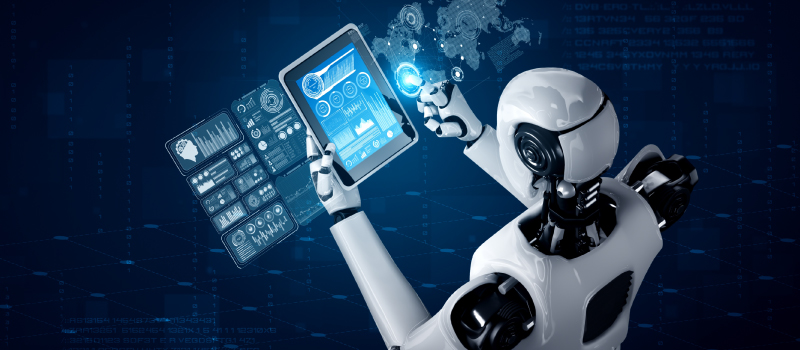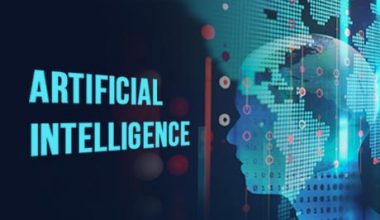In our data-centric world, decision-making is increasingly being driven by artificial intelligence (AI). Businesses and governmental organisations strive to make better decisions to gain a competitive edge, frequently with insufficient data. Whether it’s for determining the causes of rising crime rates, creating legislation to reduce senseless gun deaths, detecting cancer early, or forecasting weather events, data is at the centre of many organisations’ decision-making processes.
However, decision-making remains one of the ultimate tests for leadership in new entrepreneurs. Even experienced leaders with a track record of sound decision-making have, at some point, made a drastically poor decision that shook their reputation.

As the talk about Artificial intelligence promises a radical transformation of the organization, leaders are inquisitive to know if it will make it easier for them. While many of them are excited, some don’t want decision-making made easier. Their ability to make sound decisions without complex technology is the foundation of their reputation as good leaders.
The good news is that AI is unlikely to make it easier for decision-makers as they’ll be required to input judgment in the machine predictions. As the real impact remains to be seen, there are ways in which AI is set to affect business decision-making inevitably.
AI aims to create intelligent machines that can carry out tasks like speech recognition, visual perception, decision-making, and language translation that ordinarily require human intelligence. AI systems use a variety of techniques to learn from data and improve their performance over time, including algorithms, statistical models, and machine learning techniques.
There are several ways in which AI can help leaders make better decisions. Here are a few examples:
Predictive analytics: AI algorithms can analyse large data sets and find patterns and trends that human analysts might miss. This can help decision-makers reach better conclusions based on data-driven insights. Examining historical data and predicting future developments, such as market trends, consumer behaviour, and financial performance, are all skills that can be learned. This can help executives make decisions based on data and the most recent information. AI algorithms can process and analyse vast amounts of data from numerous sources, including structured data like sales figures and unstructured data like social media posts.
Data Analysis: AI algorithms can help leaders quickly and accurately analyze large volumes of data from various sources, allowing them to identify patterns, trends, and insights that would be difficult or impossible to detect through manual analysis. This can help leaders make informed decisions based on objective data rather than gut feelings or intuition.
Natural language processing: AI can analyze large amounts of unstructured data, such as text from social media, customer feedback, or news articles, and extract valuable insights that can inform decision-making. Depending on the analysis being done, natural language processing can be structured using a variety of machine learning techniques. It might be something straightforward, like usage frequency or sentimental value, or it might be something more intricate.
Automation: AI can automate repetitive tasks and processes, freeing up valuable time and resources for leaders to focus on strategic decision-making. AI can also automate repetitive and time-consuming tasks, freeing human employees to focus on more strategic tasks. Artificial intelligence can automate both cognitive and physical tasks. People can carry out their errands more successfully and make better decisions as a result. It makes it possible for automated decisions to be made without human involvement.
Simulations: Finally, leaders can use AI to solve issues by building simulations. Organizations can use AI to test various decision scenarios and determine the possible outcomes. Considering the results of their decisions can assist leaders in making wiser decisions. A city might, for instance, use AI to simulate various traffic patterns to determine how a new road design would affect congestion.
Personalize experiences: AI can analyze customer data and personalize experiences, such as product recommendations and marketing messages, to increase customer satisfaction and loyalty. The AI algorithms can analyze customer data to identify individual preferences and tailor marketing and sales efforts accordingly.
Risk management: AI can identify potential risks and vulnerabilities in an organization’s systems and processes, allowing leaders to take proactive measures to mitigate these risks. It can identify risks and opportunities in real-time, such as detecting fraudulent transactions or identifying new market trends.
Predictive modelling: Predictive modelling uses mathematics to predict future events or outcomes by looking for patterns in a set of input data. It is a vital component of predictive analytics, which uses recent and historical data to forecast activity, behaviour, and trends.
AI can create predictive models that forecast future trends and outcomes, helping leaders anticipate problems and opportunities before they occur.
Decision support: AI can provide decision support tools that help leaders evaluate different scenarios and make informed decisions based on a range of factors. AI systems can provide decision support to leaders by suggesting possible courses of action based on data analysis and machine learning algorithms. This can help leaders identify the most effective strategies for achieving their goals.
Decision support systems, which use artificial intelligence to make rational decisions, may aid in better predicting customer behaviour. By utilising this system, AI systems can support real-time decisions and updated market trend gathering, forecasting, and analysis.
Business decisions with AI
AI improves automation while minimizing labour-intensive human work and tiresome tasks. Consider intelligent weather forecasting. Today, it is known that AI-powered tasks can fill the gap between climate and data scientists.
Companies are more prepared to combat disasters with the aid of AI, thanks to its decision-making algorithms. On the plus side, the world has seen firsthand how significantly AI has affected people’s lives and the economy. AI is currently a hybrid form of capital, assisting human and economic development.
Marketing decisions
When it comes to marketing decisions, businesses frequently face several complexities. Customer-driven market complexities in decision-making are increasing every day. The customer’s wants and requirements must first be understood. Finally, the products must be in accordance with the applicable specifications.
Understanding dynamic consumer behaviour is critical for making long-term and short-term marketing decisions. Appropriate AI modelling and simulation methods may assist people in gaining a better understanding of the buyers’ perspectives.
Customer relationship management (CRM)
AI has improved and expanded the capabilities of customer relationship management. Several functions have been automated, including data recording, contact management, data analysis, and lead ranking. Furthermore, the AI buyer’s persona model can predict a customer’s lifetime value. These features enable marketing teams to work more effectively and fluently.
Recommendation system
This artificial intelligence system was first used on music-related websites. The recommendation system has since spread to a variety of industries. It works by first learning about the user’s content preferences. As a result, the content that corresponds to the preferences is advanced. The bounce rate is reduced as a result. Furthermore, the AI system’s learnings may be used to target relevant content better.
Automation efficiency
In business processes, AI-generated automation efficiency has surpassed assembly lines. Automated efficiency is used in business functions such as marketing and distribution. AI has accelerated processes and provided decision-makers with trustworthy information. Humans can gain reliable insights into customers through marketing. This improves interaction with customers. Effective decision-making is now possible thanks to automated market segmentation and campaign management.
In summary, AI can revolutionize how leaders make decisions by providing them with real-time data-driven insights, automating repetitive tasks, and identifying potential risks and opportunities. However, leaders must understand AI’s limitations and use it with human judgment and expertise to make the best organizational decisions. Lots of exciting changes are on the horizon. While AI might not make the process easier, it will significantly contribute towards streamlining decisions for better processes and an agile future organization.
For businesses of all sizes, AI technology is becoming more accessible and less expensive. Using AI’s power, leaders can improve decisions, boost productivity, and encourage innovation. But it’s critical to remember that AI is not a cure-all. Organizations must combine AI and human resources to get the best results.





